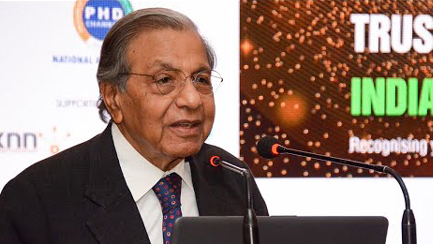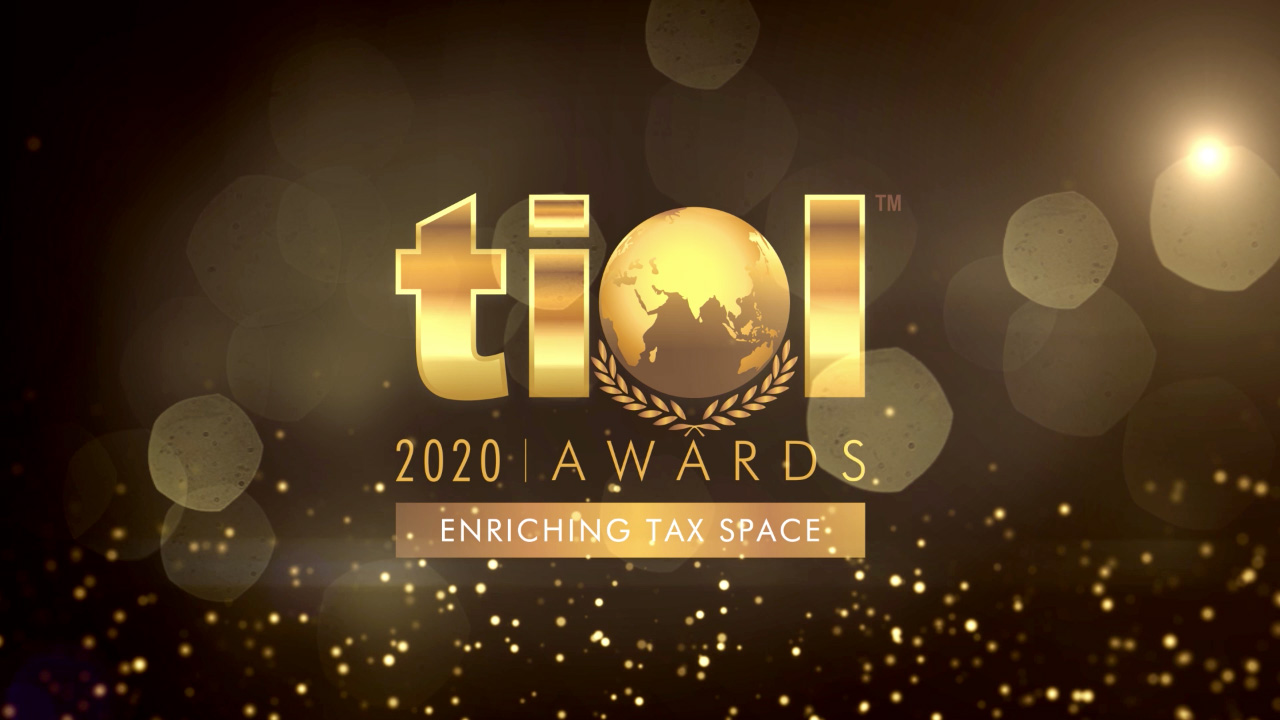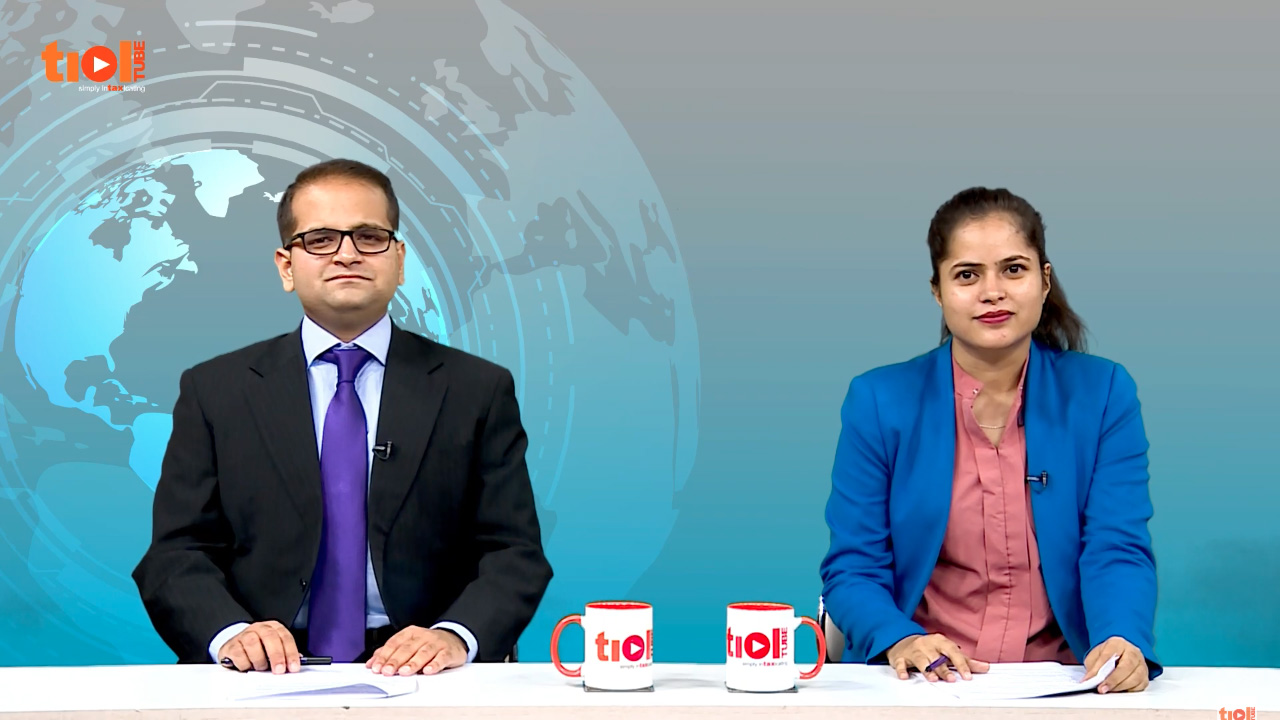|
SERVICE TAX
2019-TIOL-3460-CESTAT-BANG
Infosys Ltd Vs CC, CE & ST
ST - Refund - Rule 5 of CCR - Notification 5/2006-CE(NT) - Relevant date for filing refund claims should be taken to be end of the quarter in which FIRC is received as held by the Larger Bench in the case of Span Infotech [2018-TIOL-516-CESTAT-BANG-LB]: CESTAT [para 4.1]
ST - Refund is also denied on the ground that there is no nexus between the input services on which credit was availed and the output service exported; that the appellant has not produced concrete evidence in support of utilisation of input services in the export of service as required under rule 5 read with rule 2(l) of CCR, 2004; that whether the input services were totally used for export of services or were partially used etc.
Held: CBEC Circular 120/01/2010 dated 19.01.2010 has clarified on the subject matter in paragraph 3.2.1 - appellant has also submitted that the Commissioner(A) has also not given any finding on the various case laws cited by them - such an action by the lower authorities is a clear violation of the principles of natural justice - it is the bounden duty of the authorities to examine the claims of the appellants - for this reason, the matter needs to be remanded to the lower authorities for re-examination in the light of the submissions made, the Chartered Accountants certificates and judicial pronouncements - lower authority to decide the matter within twelve weeks: CESTAT [para 4.2, 5]
- Matter remanded:BANGALORE CESTAT
2019-TIOL-3452-CESTAT-MUM Bajaj Allianz Life Insurance Company Ltd Vs CCE & ST
ST - The dispute pertains to non-inclusion of 'policy administration charge' collected from recipients of 'life insurance' service in assessable value for discharging liability under FA, 1994 - In confirming the demand, Rule 5(1) of Service Tax (Determination of Value) Rules, 2006 has been relied upon - The impugned order covering the period from 2007 to 2008, consequent upon SCN dated 16th April 2013, by invoking the extended period, confirmed the demand and justified the inapplicability of bar of limitation - Palpably, the period for which recovery has been confirmed would be within the sanction of law only if extended period was so invoked - In the light of transactions of assessee having been subject to scrutiny and proceedings initiated on the earlier occasion, the notice was precluded from seeking recovery beyond the normal period prescribed in section 73 of FA, 1994 - As the period covered in present SCN is 2007-08 and the notice was issued in 2013, the demand fails to overcome the bar of limitation as held by Supreme Court in Nizam Sugar Factory - 2006-TIOL-56-SC-CX - Tribunal also cannot overlook the impropriety on the part of adjudicating authority in making observation on presumption of deficiency in earlier proceedings in an attempt to justify the invoking of extended period - That, appropriately, falls within the competence of designated Committee of Chief Commissioners and not of a successor in office - Such erroneous and improper presumption cannot also overcome the bar of limitation in section 73 of FA, 1994 - The impugned order is set aside: CESTAT
- Appeal allowed: MUMBAI CESTAT
CENTRAL EXCISE
2019-TIOL-2720-HC-AHM-CX
CCGST & CE Vs Devyani Processors Pvt Ltd
CX - On a plain reading of the provisions of section 11AC of the CE Act, it is evident that the condition precedent for invoking the said provision is that there should be fraud, collusion or any mis-statement or suppression of facts or contravention of any of the provisions of the Act or the rules made thereunder with intent to evade payment of duty - adjudicating authority has recorded a categorical finding of fact that there was no fraud, collusion or any mis-statement or suppression of facts on the part of the respondent with intent to evade payment of central excise duty - In the light of the concurrent findings of fact recorded by the adjudicating authority, the condition precedent for invoking the provisions of section 11AC of the Act is not satisfied - Under the circumstances, it cannot be said that the impugned order passed by the Tribunal upholding the order of Commissioner in not imposing any penalty u/s 11AC, suffers from any legal infirmity so as to give rise to any question of law, much less, a substantial question of law, warranting interference – Revenue appeal fails, hence dismissed: High Court [para 6, 7]
- Appeal dismissed: GUJARAT HIGH COURT
2019-TIOL-3462-CESTAT-HYD
JSW Cement Ltd Vs CCT
CX - The assessee-company manufactures Cement and sells it from the factory and also from its depots to its customers - In cases where the assessee suppliedthe goods to customers on FOR destination basis for delivery at the buyer's premises, it took Cenvat credit on the services of GTA in relation to transportation of goods from the factory and depots to the buyer's premises - An SCN was issued to the assessee to deny credit and recover the same with penalties - On adjudication, the cenvat credit was allowed and the demand raised was dropped partially - Such credit was disallowed on grounds that the documents furnished by the assessee pertain to clearances of final products from the factory to the buyer's premises - Hence the present appeal.
Held - The issue at hand is whether the appellant is entitled to Cenvat credit on GTA services and if so, whether the amount denied in the O-i-O has been correctly denied for the reasons mentioned - Undisputedly, the Cement was sold in this case on FOR destination basis for delivery at the buyer's premises by the supplier -The CCR 2004 permit availment of Cenvat credit on GTA services up to the place of removal - Thereby, the question is whether in such case, cenvat credit is admissible on outward transportation to the buyer's premises is admissible - It is seen that the adjudicating authority merits an opportunity to examine the present case in the light of the judgment of the Apex Court in Ultratech Cement Ltd and all the documents relied on by the assessee to assert eligibility to cenvat credit which was denied to them as the purchase orders clearly indicate that sale was on FOR buyer's premises basis and then decide entitlement to credit - Hence the O-i-O is set aside and the matter is remanded for passing fresh order: CESTAT
- Case remanded: HYDERABAD CESTAT
2019-TIOL-3461-CESTAT-KOL
Industrial Perforation India Pvt Ltd Vs CCE
CX - The assessee-company supplied Cable Tray with accessories, classifiable under Chapter 73 of the First Schedule to the CETA, to various thermal power projects - It then claimed exemption from payment of duty under Notfn No 6/2006-CE and Notfn No 12/2012-CE, as applicable in such period - As per these Notfns, all goods falling under any chapter supplied under International Competitive Bidding were exempted from levy of Excise duty, on the condition that the goods are exempted from Customs leviable under First Schedule to the CTA and from additional duty leviable u/s 3 of the CTA when imported into India - On adjudication, the Excise exemption was denied on grounds that the goods were not unconditionally exempted from Customs duty when imported into India as per the corresponding Customs Notfn No 21/2002-Cus and subsequent Notfn No 12/2012-Cus as amended - The Commr observed that the goods must be unconditionally exempted from duty when imported into India and that the goods manufactured by the assessee fell under Chapter 73089090 and were used as support for laying cables and so could not be treated as machines, spare parts or raw materials to be used in making such goods of chapter 84 - It was also observed that the exemption provided under Chapter 9801 is inapplicable to the goods - Hence the present appeal.
Held - In the instant case, as the goods were supplied for setting up Mega Power Projects, it is seen that the Commr. did not negate the submissions of the assessee regarding availability of exemption from Customs duty - Had the goods been imported from outside India, they would be eligible for exemption as projects import as available under Notfn No 21/2012-Cus - It is also seen that the entries in the Excise exemption notifications as availed by the assessee in Column No (2) for reference of chapter or heading specifically states "Any Chapter" which clearly implies that goods sought to be cleared by the assessee under these exemption entries may fall under any of the chapter headings of CETA with the only condition that they are supplied under International Competitive Bidding which is exempted from Customs duty - Hence the observation of the Commr. in denying the exemption is irrelevant as the goods falling under any of the chapter headings of CETA are exempted - The Commr. also noted that the goods must be unconditionally exempted under Notfn No 21/2002-Cus when imported into India - In this, the Commr. attempted to examine fulfilment of a condition which is not appearing in subject Excise exemption notifications - The only condition is that the goods are cleared under International Competitive Bidding for use in specified Mega Power Projects, which are exempted from Customs duty - This conditions is undisputedly satisfied in the assessee's case - Hence the assessee is eligible for exemption from payment of Central Excise duty: CESTAT
- Assessee's appeal allowed: KOLKATA CESTAT
2019-TIOL-3459-CESTAT-BANG
Dee And Em Naturals And Fragrances Vs CCE
CX - Appellants had filed two appeals E/968/2009 and E/969/2009 against OIA 41/2009 dated 31.07.2009 - Tribunal by its decision dated 23.12.2010 [ 2010-TIOL-1807-CESTAT-BANG ] considered the appeal E/968/2009 but the appeal E/969/2009 remained to be decided - It is apparent from the CESTAT order dated 23/12/2010 that the same was with respect to the duty on the goods lying in the factory and confiscated - Tribunal has held that provisions of Section 11 of the Central Excise Act cannot be invoked to demand duty on the successor prior to insertion of proviso in section 11 w.e.f 10.09.2004 and thus set aside the demand - since the present appeal is also against the same impugned order and which has been set aside by Tribunal, without any ROM having been filed, the impugned order becomes non Est - moreover, the Tribunal order has also been upheld by the High Court [2012-TIOL-433-HC-KAR-CX] - Present appeal, therefore, gets consequentially merged with the earlier order passed by the Tribunal and is held to have been allowed earlier - no intervention is required by the Bench - as there is nothing left to be decided in the matter of appeal E/969/2009, the same is disposed of: CESTAT [para 3, 4]
- Appeal disposed of: BANGALORE CESTAT
2019-TIOL-3458-CESTAT-BANG
Bannari Amman Sugars Ltd Vs CCE
CX - Appellants are manufacturers of sugar - Molasses, denatured spirit, ethanol etc. emerge as by products; ethyl alcohol is manufactured by further fermentation and distillation from molasses which is captivity consumed in the distillery for the purpose - appellant claimed benefit of exemption notification 67/95-CE in respect of molasses captively consumed - no CENVAT credit was availed in respect of inputs used in manufacture of molasses - SCNs were issued seeking to deny the exemption notification 67/95-CE as well as rejecting of refund claims on the ground that break-up of consumption of molasses in excisable and non-excisable goods is not given - appeal to CESTAT.
Held: Issue is no longer res integra - Tribunal has passed a series of orders in respect of the same issue and also in appellants case [2018-TIOL-1359-CESTAT-BANG] - Notification 67/95-CE is not available in respect of inputs used in the manufacture of final products which are exempted from whole of duty or are chargeable to ‘Nil' rate of duty - Such alcohol is not levied to Central Excise duty but are cleared on payment of State excise duty - as to whether alcohol for human consumption and which is not charged to CEX duty will fall under either of the two categories of ‘exempted from whole of duty' or ‘chargeable to Nil rate of duty' has been answered in favour of the appellant in the case of Manakpur Chini Mills Ltd. [2017-TIOL-2083-CESTAT-ALL] - following the same, impugned order is set aside and the appeal is allowed with consequential relief: CESTAT [para 4, 4.1]
- Appeal allowed: BANGALORE CESTAT
2019-TIOL-3451-CESTAT-KOL
Birla Tyres Vs CCE, C & ST
CX - By an adjudication order read with Corrigendum, the Commissioner has confirmed an excise duty demand against Birla Tyres under the Proviso to Section 11A(1) of CEA, 1944, along with interest under Section 11AB of the Act - The Commissioner has held that in respect of duty paid on some inputs on which cenvat credit was availed though the said inputs were used in the manufacture of Animal Driven Vehicle Tyres ("ADV tyres"), which was exempted from duty, the credit was not reversed - Penalty of an equivalent amount of the duty has also been imposed upon Birla Tyres under Section 11AC of the Act - A personal hearing was held by the then Adjudicating Authority when the Commissioner required Birla Tyres to submit the documentary evidences like; Cost Auditor's certificate showing the weight of ADV Tyres for the period covered by the impugned SCN, the resolution of Board of Directors of company appointing M/s S. Gupta & Company as Cost Auditor, Extracts from the Cost Auditor's reports for ADV Tyres and Documentary evidence in support of the reversal of cenvat credit of Rs. 1,55,867/-, which has not been factored into the SCN - In terms of the said direction Birla Tyres submitted all the documents, however, no order was passed by the then Commissioner and, as such, a fresh personal hearing was thereafter held by the incumbent Commissioner on 05.02.2008, pursuant to which the impugned order was passed - In the SCN, it is alleged that during the said period, Birla Tyres had used/consumed various inputs in or in relation to the manufacture of ADV tyres - The finding that the stock register and stock statements maintained by Birla Tyres established that the input materials alleged in SCN were used in or in relation to manufacture of ADV tyres during the said period, either directly or indirectly is also not supported by any material on record - The entire stock records, which also contain stock of inputs of other varieties of tyres, including radial tyres, by itself cannot justify such a conclusion - No steps were taken to verify the production process and to satisfy as to the input materials used in the manufacture of ADV tyres - Therefore, in the premises the Cost Audit report submitted by Birla Tyres in terms of the direction of predecessor Commissioner in the present proceedings, as well as the certificate of the Cost Auditor, submitted as per his direction in the proceedings are to be relied upon - They establish that the subject materials were never used as input materials, either directly or indirectly, in or in relation to the manufacture of ADV tyres - It is a settled principle of law that in the absence of sufficient, positive and tangible evidence on record, findings based on inferences as in impugned order are unsustainable in view of Oudh Sugar Mills - 2002-TIOL-307-SC-CX-CB - Further, as held by Supreme Court in Auto Ignition Ltd. - 2008-TIOL-121-SC-CUS, the burden of proof that assessee had availed modvat/cenvat credit is on the Revenue - Said principle fully applies to the instant case also - In the premises the demand of Rs. 17,67,273/- confirmed by impugned order also cannot be sustained - Hence, the demand of interest and imposition of penalty are also unsustainable: CESTAT
- Assessee's appeal allowed: KOLKATA CESTAT
CUSTOMS
2019-TIOL-2719-HC-AHM-CUS
CC Vs Nayara Energy Ltd
Cus - Revenue in appeal against order passed by CESTAT - Respondent is engaged in the manufacture and export of various petroleum products including Motor Spirit, LPG, SKO etc, falling under chapter headings 25 and 27 - The respondent exported Motor Spirit under shipping Bill dated 7.10.2013 and imported LSFO (Low Sulpur Fuel Oil) under Advance Authorisation - A show cause notice dated 8.12.2016 came to be issued to the respondent alleging that they had mis-declared that the exported product has been manufactured out of LSFO and has thereby violated the condition of Notification No. 31/(RE-2013)/2009-14 dated 1.8.2013 issued by DGFT read with para 4.1.15 of FTP, 2009-14 - It was alleged that the respondent had not used LSFO as an input in the export goods but has used VGO (Vacuum Gas Oil) generated during the refining of crude oil and had subsequently imported permissible input LSFO without payment of customs duty under Notification No.96/2009-Cus against the Advance Authorisations and had thus contravened the provisions of rule 14 of Foreign Trade (Regulation) Rules, 1993 - It was proposed to demand customs duty on goods imported by the respondent under Advance Authorisation under section 28(4) along with interest under section 28AA and penalties u/s 112(a)/114A/114(iii) of Customs Act - By an order-in-original, the Commissioner of Customs, Jamnagar, denied the exemption availed and confirmed the duty demand - Tribunal allowed the appeal filed by the respondent and set aside the order-in-original dated 20.2.2018, therefore, Revenue is before the High Court.
Held: Having regard to the fact that Sweet VGO used in the manufacture of motor spirit meets with the specification of LSFO as prescribed by BIS: 1593-1982, the question of breach of DGFT notification No. 31(RE-2013)/2009-14 dated 01.08.2013 whereby Para 4.1.15 came to be inserted in the Foreign Trade Policy providing that the inputs actually used in manufacture of the export product should only be imported under the Authorisation and similarly inputs actually imported must be used in the export product, does not arise - Court finds no infirmity in the approach adopted by the Tribunal in accepting the explanation put forth by the respondent, which has a duly scientific basis - From the facts noted, it is evident that the conclusions arrived at by the Tribunal are based upon findings of fact recorded after appreciating the material on record - In the absence of any perversity being pointed out in the findings of fact recorded by the Tribunal, no question of law, much less, a substantial question of law can be stated to arise out of the impugned order, warranting interference – Revenue appeal dismissed: High Court [para 20, 21, 22]
- Appeal dismissed: GUJARAT HIGH COURT
2019-TIOL-2718-HC-KAR-NDPS
Putta Venkateshwarulu Vs UoI
NDPS - Main ground urged on behalf of petitioner for seeking bail is that the seized material is not 'Ketamine' - The second allegation that Shivaraj was trained by petitioner is based on statement of co-accused and no other allegation is made by the prosecution against petitioner.
Held: Admittedly, as per the charge sheet, 17 samples were sent to Central Revenue Controlled Laboratory - The chemical analysis report has shown negative result for presence of 'Ketamine' - Thus, as on date, the seized material cannot be described as 'Ketamine' - Though a statement made before any Officer referred under Section 42 of the NDPS Act can be used by the prosecution against an accused, it is relevant to note that the allegation is with regard to training a co-accused in manufacturing drug - No other material is placed by the Prosecution to corroborate the statement of Shivaraj - Admittedly prosecution has already filed charge sheet and petitioner is in custody since 10th May 2019 – In the result, Petition is allowed; Petitioner shall be released on bail upon his executing a personal bond for Rs.5,00,000/- and two sureties for the like-sum to the satisfaction of the Additional City Civil and Sessions Judge and Special Judge for NDPS Act, Bengaluru: High Court [para 17, 19, 20]
Petition allowed: KARNATAKA HIGH COURT
| 


ADAHEAD_15.jpg)





